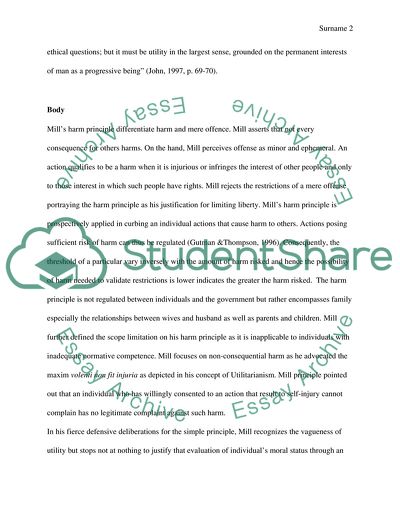Cite this document
(What Is the Very Simple Principle that Mill Sets out to Defend in On Coursework, n.d.)
What Is the Very Simple Principle that Mill Sets out to Defend in On Coursework. https://studentshare.org/philosophy/1854587-what-is-the-very-simple-principle-that-mill-sets-out-to-defend-in-on-liberty-is-it-either-simple-or-defensible
What Is the Very Simple Principle that Mill Sets out to Defend in On Coursework. https://studentshare.org/philosophy/1854587-what-is-the-very-simple-principle-that-mill-sets-out-to-defend-in-on-liberty-is-it-either-simple-or-defensible
(What Is the Very Simple Principle That Mill Sets Out to Defend in On Coursework)
What Is the Very Simple Principle That Mill Sets Out to Defend in On Coursework. https://studentshare.org/philosophy/1854587-what-is-the-very-simple-principle-that-mill-sets-out-to-defend-in-on-liberty-is-it-either-simple-or-defensible.
What Is the Very Simple Principle That Mill Sets Out to Defend in On Coursework. https://studentshare.org/philosophy/1854587-what-is-the-very-simple-principle-that-mill-sets-out-to-defend-in-on-liberty-is-it-either-simple-or-defensible.
“What Is the Very Simple Principle That Mill Sets Out to Defend in On Coursework”. https://studentshare.org/philosophy/1854587-what-is-the-very-simple-principle-that-mill-sets-out-to-defend-in-on-liberty-is-it-either-simple-or-defensible.


